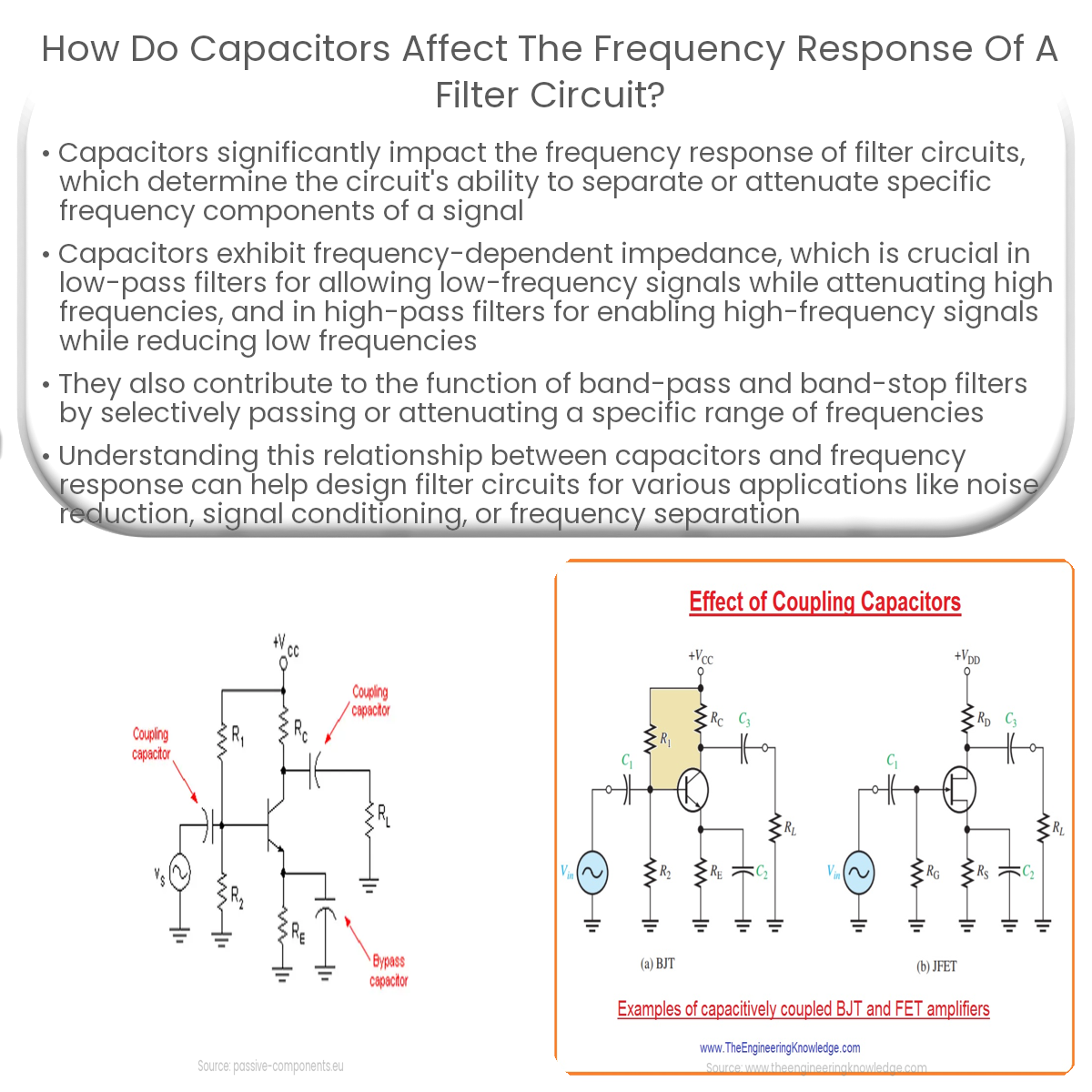Capacitors affect filter frequency response by allowing specific frequency ranges to pass or be attenuated based on their frequency-dependent impedance.
Capacitors and Frequency Response in Filter Circuits
A capacitor’s effect on a filter circuit’s frequency response is crucial for understanding how various types of filters operate. The frequency response of a filter circuit determines how well the circuit can separate or attenuate specific frequency components of an input signal. This article will explore the role capacitors play in shaping the frequency response of filter circuits.
Capacitor Characteristics
Capacitors are passive electronic components that store energy in an electric field. They have an impedance that depends on the frequency of the applied signal. At low frequencies, capacitors exhibit high impedance, while at high frequencies, their impedance decreases. This frequency-dependent behavior is represented by the formula:
Impedance (Z) = 1 / (2πfC)
where f is the frequency of the signal, and C is the capacitance of the capacitor.
Capacitors in Low-Pass Filters
In a low-pass filter, capacitors are used to allow low-frequency signals to pass through while attenuating high-frequency signals. The capacitive impedance decreases as the frequency increases, causing the capacitor to short-circuit high-frequency signals to ground. As a result, only low-frequency components of the input signal are allowed to pass through the output.
Capacitors in High-Pass Filters
Capacitors in high-pass filters work oppositely to those in low-pass filters. High-pass filters allow high-frequency signals to pass through while attenuating low-frequency signals. The capacitive impedance decreases as the frequency increases, which allows the high-frequency signals to pass through the capacitor while low-frequency signals are blocked.
Capacitors in Band-Pass and Band-Stop Filters
Band-pass and band-stop filters utilize capacitors to create a frequency response that selectively passes or attenuates a specific range of frequencies. In band-pass filters, capacitors work in combination with inductors or resistors to create a resonance at a desired frequency or frequency band. Conversely, band-stop filters use capacitors to create a high impedance at a specific frequency or frequency band, effectively attenuating those frequencies.
Conclusion
Capacitors play a vital role in shaping the frequency response of filter circuits. Their frequency-dependent impedance allows them to selectively pass or attenuate signals based on frequency. By understanding the relationship between capacitors and frequency response, designers can create filter circuits tailored to specific applications, such as noise reduction, signal conditioning, or frequency separation.


